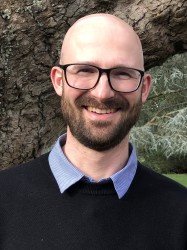BibTex format
@article{Leroi:2020:10.1038/s41562-020-0844-7,
author = {Leroi, AM and Ben, L and Rosindell, J and Zhang, X and Kokkoris, GD},
doi = {10.1038/s41562-020-0844-7},
journal = {Nature Human Behaviour},
pages = {780--790},
title = {Neutral syndrome},
url = {http://dx.doi.org/10.1038/s41562-020-0844-7},
volume = {4},
year = {2020}
}

